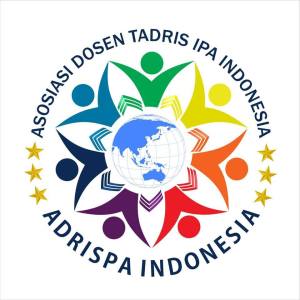CONCRETE REPRESENTATIONAL ABSTRACT APPROACH TO IMPROVE STUDENTS' PROBLEM SOLVING SKILLS ON HEAT MATERIAL
DOI:
https://doi.org/10.21154/insecta.v3i2.5189Keywords:
Concrete Representational Abstract, Problem Solving SkillsAbstract
This study aimed to determine the implementation of physics learning with the Concrete Representational Abstract (CRA) approach on the heated material and the improvement of students' problem-solving skills using the CRA approach on the heated material after learning. The population of this research is all class VII in one Madrasah Tsanawiyah in the Majalengka district. the research sample is class VII-B with 20 students. The sample used a simple random sampling determination technique. The research method used is a pre-experimental design with one group pretest-posttest design. The data on the results of the implementation of learning with the CRA approach were obtained using an observation sheet, while the data for improving the problem-solving skill was obtained through an essay test of five questions. The study results for three meetings showed that the activities of teachers and students using the CRA approach had increased, with an average teacher activity of 81.37% in the excellent category and student activities of 77.15% in the excellent category. There is an increase in the student's KPM on heat material with an average N-Gain value of 0.71, which is in the high category. The normality test results showed that the pretest and posttest data were normally distributed, so the t-test was used to test the hypothesis. The results obtained are tcount (25.58) > ttable (1.73), which means Ho is rejected, and Ha is accepted. Thus, the student's problem-solving skill increases using the CRA approach to the heated material.References
Azmidar & Malasari, P.N. (2022). Using the concrete-representational-abstract approach to enhance students’ interest in mathematics refers to the primer mathematical skills. Jurnal Pendidikan MIPA.23(3).894-903.
Al-Salihat, M.M.S. (2022). The effect of using concrete-representational-abstract sequence in teaching the perimeter of geometric shapes for students with learning disabilities. International Journal of Education in Mathematics, Science and Technology.10(2).477-493.
Arvianto, Ilham Rais, dan Budi. (2011). Penggunaan multimedia pembelajaran untuk meningkatkan pemahaman konsep siswa dengan pendekatan intruksional concrete representational abstract (CRA). Prosiding Seminar Nasional Matematika. Surakarta: Prodi Pendidikan Matematika Universitas Muhammadiyah.
Aunurrahman. 2009. Belajar dan Pembelajaran. Bandung: Alfabeta.
Batlolona, J.R., Baskar, C., Kurnaz, M.A & Leasa, M. (2018). The improvement of problem-solving skills and physics concept mastery on temperature and heat topic. Jurnal Pendidikan IPA Indonesia.7(3).273-279.
Bouck, E.C., Satsangi, R., & Park, J. (2017). The concrete representational abstract approach for students with learning disabilities: an evidence-based practice synthesis. Remedial and Special Education.00(0).1-18.
Citra, C., Distrik, I.W., & Herlina, K. (2019). The practicality and effectiveness of multiple representations based teaching material to improve student’s self-efficacy and ability of physics problem solving. Young Scholar Symposium on Science Education and Environment 2019.1-9.
Fauziah, Fika Rizki. (2014). Penerapan Pendekatan Concrete Representational Abstract (CRA) untuk Meningkatkan Kemampuan Pemecahan Masalah Matematis Siswa. Skripsi UIN Sunan Gunung Djati Bandung. Tidak Diterbitkan.
Flores, M.M., & Hinton, V.M. (2022). The use of the concrete-representational-abstract (cra) sequence to improve mathematical outcomes for elementary students with emotional behavioral disorders.1-31.
Good, M., Maries, A., & Singh, C. (2019). Impact of traditional or evidence based active engagement instruction on introductory female and male students’ attitudes and approaches to physics problem solving. Physical Review Physics Education Research.15(2).1-21.
Hidayatullah, Z., Wilujeng, I., Nurhasanah., Gusemanto, T.G., & Makhrus, M. (2021). Synthesis of the 21st century skills (4c) based physics education research in indonesia. JIPF (Jurnal Ilmu Pendidikan Fisika).6(1).88-97.
Jufri, A. Wahab. (2013). Belajar dan Pembelajaran Sains. Bandung: Pustaka Reka Cipta.
Kurniawan, W., Darmaji, D., Astalini., Kurniawan, D.A., & Hidayat, M. (2019). Multimedia physics practicum reflective material based on problem solving for science process skills. International Journal of Evaluation and Research in Education (IJERE).8(4).590-595.
Ningrum, M.C., Hariyono, E., & Maryuni, W. (2022). Implementation of problem based learning in vlp software assisted volunte physics learning on students’ problem-solving ability. Budapest International Research and Critics Institute-Journal (BIRCI-Journal).5(1).4185-4193.
Nugroho, S.A., & Jailani. (2019).The Effectiveness of concrete representational abstract approach (cra) approach and problem solving approach on mathematical representation ability at elementary school. in International Conference on Meaningful Education, KnE Social Sciences.27”“36.
Nursifah, Lusi. (2014). Pendekatan Pembelajaran CRA (Concrete Representational Abstract) dengan Bantuan Media Animasi untuk Mengembangkan Kemampuan Tiga Level Representasi pada Konsep Laju Reaksi. Skripsi UIN Sunan Gunung Djati Bandung. Tidak Diterbitkan.
Prahani, B.K., Rizki, I.A., Nisa, K., Citra, N.F., Alhusni, H.Z., & Wibowo, F.C. (2022). Implementation of online problem-based learning assisted by digital book with 3d animations to improve students physics problem-solving skills in magnetic field subject. Journal of Technology and Science Education.12(2).379-396.
Rustioglu, O., & Avcioglu, H. (2022). Comparison of the different presentations of concrete-representational-abstract (cra) sequence to teach functional academic skills for students with developmental retardation.Sustainability.1-19.
Syukri, M., Soewarno, S., Halim, L., & Mohtar, L.E. (2018). The impact of engineering design process in teaching and learning to enhance students’ science problem-solving skills. Jurnal Pendidikan IPA Indonesia.7(1).66-75.
Theasy, Y., Wiyanto, & Sujarwata. (2018). Multi-representation ability of students on the problem solving physics. International Conference on Mathematics, Science and Education 2017.1-5.
Witzel, B. S. (2005). Using cra to teach algebra to student with math difficulties in inclusive settings. A Contemporary Journal 3 (2), 49-60.








